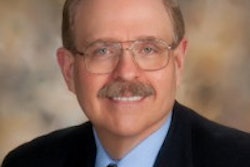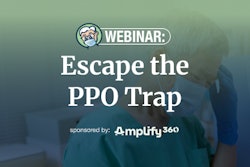
From accusations of Medicaid abuse by All Smiles Dental and financial blunders by Allcare Dental to last week's Bloomberg report on how private equity firms are increasingly the "silent partners" behind many corporate dental chains, questions are mounting over the ethics and viability of this business model and its potential effect on the future of dentistry.
But a presentation at the recent American Academy of Pediatric Dentistry (AAPD) annual meeting in San Diego painted a very different picture of what it can be like to work for one of these large group practices.
Among the many criticisms of dental chains is that they target recent dental graduates who are struggling to address school debt loads that range from $150,000 to $200,000 or more.
 Ronald H. Hsu, DDS
Ronald H. Hsu, DDS
When Ronald H. Hsu, DDS, finished his pediatric dental residency at the University of North Carolina seven years ago, that was definitely part of his decision-making process. So as he waited to hear about an academic appointment he was interested in, he also researched other options -- including a clinical position at Gentle Dental, part of the Interdent group.
As a father of four young children, the position at Gentle Dental offered several advantages, he said during a Breakfast Rounds session May 26 at the AAPD meeting. Ultimately, he opted to take the job at Gentle Dental and has been with its offices in Vancouver, WA, for six years.
When he reviewed the AAPD's most recent income figures for pediatric dentists, he feels he made a good choice.
"The average net income for an independent private practitioner who owned all or part of his or her practice in 2009 was $192,680 for a general practitioner and $312,660 from the primary practice of all pediatric dentists," he said. "When I looked at my income, it falls within the average."
And that is working 9 to 5 four days a week with "minimal practice management headaches," Dr. Hsu added -- compared with many of his colleagues in private practice, who talk about being "really stressed" and consider their work their "youngest child" or "second wife/husband."
"So if I can spend time with my kids now and make a decent living, why not?" he said.
Clinical advantages
Founded in 1978, Interdent is a practice management company that currently owns and operates seven brands -- Gentle Dental, Dedicated Dental, Capitol Dental, Smile Keepers, Mountain View Dental, Affordable Dental Care, and Blue Oak Dental Group -- with 120 offices and more than 450 dentists in eight Western states, according to Dr. Hsu. The network delivers dental services to more than 1 million patients annually, including general dentistry, orthodontics, periodontics, endodontics, pedodontics, prosthodontics, and oral surgery.
"The true owners are a bunch of investors, and Interdent is their corporation," Dr. Hsu said.
Each dental practice is considered an affiliated professional corporation (APC), and the clinical staff are employees of the corporation. Specialists earn 35% of the adjusted gross billings for all exams. The company also offers 401(k) benefits and bonus incentives, Dr. Hsu noted.
While all business decisions are made by the corporate owners, clinical decisions are left to the chief clinical officer and the clinical board, whose chairman is a full-time general practitioner (GP). All other board members are dentists as well.
“If I can spend time with my kids now and make a decent living, why not?”
— Ronald H. Hsu, DDS
Gentle Dental has 21 offices in the Vancouver/Portland, OR area, with 45 general practitioners and 17 specialists covering all 21 offices, according to Dr. Hsu.
This type of structure has many advantages, he emphasized. He often works the same hours as one of the endodontists, which can be very convenient if an unexpected complication occurs.
"Say a young patient comes in with a toothache and it turns out he needs a root canal," Dr. Hsu said. "Typically, you would pick up the phone and make a referral. But in our case, the endodontist can came over to my side of the office, take the kid to his side, do the root canal, and an hour later the patient is back in my chair."
As a result, the patient is saved two extra trips, and all treatment is completed in a couple of hours with a single bill, he noted.
"This is when the model really works," Dr. Hsu said. "The speed with which things can happen clinically is just super."
Families also appreciate that all members can go to the same office, and that Gentle Dental takes just about every insurance plan, he added.
There are also advantages for the clinicians, Dr. Hsu noted. For example, if a doctor is sued for malpractice, the company assumes all financial responsibility.
"If the clinician is at fault, they still have to answer to the dental board, but financially doesn't take a hit," he said.
Gentle Dental also provides its own continuing education, free of charge, he added.
Not all perfect
There are some challenges, however. Because no one on the senior management team has any direct dental experience, some decisions they make are "aggravating," Dr. Hsu acknowledged.
"But this is partly the fault of the clinical board, of which I am a member," he said. "Sometimes we have to push back harder."
|
Key questions For anyone considering joining a large group practice, Dr. Hsu recommends asking three key questions:
|
For example, when management found that most other large group practices in the U.S. generate 18% of their income from orthodontics -- compared with Gentle Dental's 5% -- the company launched an "ortho initiative." The idea, Dr. Hsu said, was to emulate the Mayo Clinic model, which meant that every new patient would be seen by every specialist in the practice during their first visit, including the orthodontist. This, management contended, would lead to automatic orthodontic referrals.
But the general practitioners resented management trying to tell them how to diagnose, Dr. Hsu said. When he and others on the clinical board pushed back, however, management held firm. Ultimately, they agreed to a compromise: The general practitioners would include a check of each patient's bite during the basic exam, then talk with the specialist to determine whether orthodontics was needed.
"This changed the message so that the GPs understood that ortho was just part of the basic exam," Dr. Hsu said. As a result, Gental Dental's ortho revenues have risen "significantly," he added.
Still, for Dr. Hsu, the fact that he can go directly to upper management with an issue and see some resolution is reassuring.
"Every time I have a major complaint, say a fairly serious managerial issue, they work it through," he said. "If they didn't, I would probably leave. But I can go directly to the CEO, and I have."



















